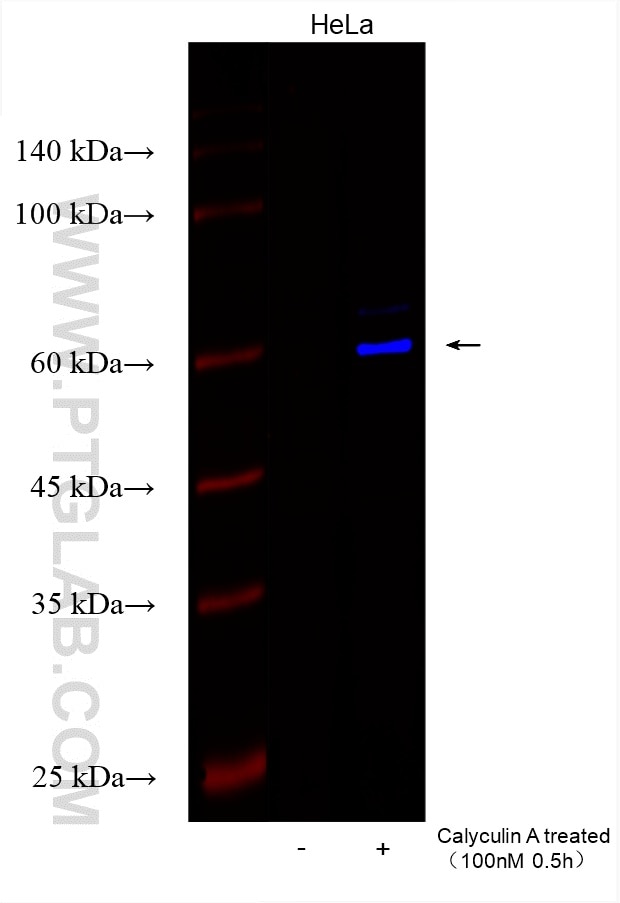Validation Data Gallery
Tested Applications
| Positive WB detected in | Calyculin A treated HeLa cells |
Recommended dilution
| Application | Dilution |
|---|---|
| Western Blot (WB) | WB : 1:1000-1:8000 |
| It is recommended that this reagent should be titrated in each testing system to obtain optimal results. | |
| Sample-dependent, Check data in validation data gallery. | |
Product Information
CL750-81785 targets Phospho-TAK1 (Thr187) in WB applications and shows reactivity with human samples.
| Tested Reactivity | human |
| Host / Isotype | Rabbit / IgG |
| Class | Recombinant |
| Type | Antibody |
| Immunogen | Peptide 相同性解析による交差性が予測される生物種 |
| Full Name | mitogen-activated protein kinase kinase kinase 7 |
| Calculated molecular weight | 579 aa, 64 kDa |
| Observed molecular weight | 75-85 kDa |
| GenBank accession number | BC017715 |
| Gene Symbol | TAK1 |
| Gene ID (NCBI) | 6885 |
| Conjugate | CoraLite® Plus 750 Fluorescent Dye |
| Excitation/Emission maxima wavelengths | 755 nm / 780 nm |
| Form | Liquid |
| Purification Method | Protein A purification |
| UNIPROT ID | O43318 |
| Storage Buffer | PBS with 50% glycerol, 0.05% Proclin300, 0.5% BSA{{ptg:BufferTemp}}7.3 |
| Storage Conditions | Store at -20°C. Avoid exposure to light. Stable for one year after shipment. Aliquoting is unnecessary for -20oC storage. |
Background Information
MAP3K7(Mitogen-activated protein kinase kinase kinase 7) is also named TAK1 and belongs to the MAP kinase kinase kinase subfamily. It plays an important role in the cascades of cellular responses evoked by changes in the environment. It has been linked to interleukin-1 receptor and tumor necrosis factor receptor signaling (PMID: 16186825). It has 4 isoforms (53-55 kDa; 64-70 kDa and 75-80 kDa)produced by alternative splicing.
Protocols
| Product Specific Protocols | |
|---|---|
| WB protocol for CL Plus 750 Phospho-TAK1 (Thr187) antibody CL750-81785 | Download protocol |
| Standard Protocols | |
|---|---|
| Click here to view our Standard Protocols |
